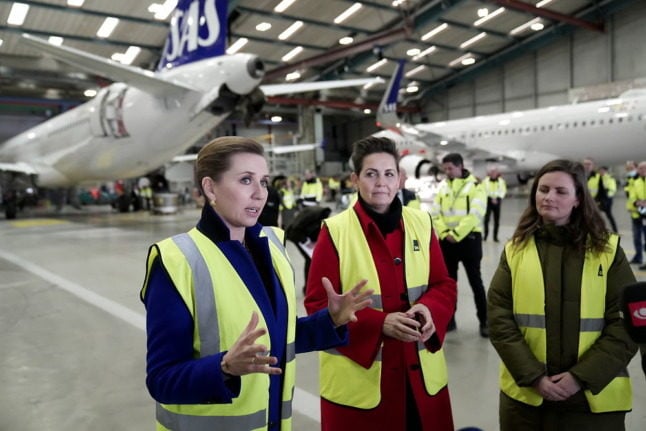In her New Year’s Day speech, Frederiksen said that the Nordic country would introduce one emissions-free domestic flight in 2025 and that all domestic flights would meet that criterion by 2030.
The prime minister attended a meeting at Copenhagen Airport on Thursday to discuss the matter.
“It’s now certain that there’s financing for this, so we’ll initiate the work as soon as possible. We are moving forward with this now,” Frederiksen told news wire Ritzau.
Representatives from the airport, airline SAS and two of the minority government’s parliamentary allies – the Red Green Alliance and the Socialist People’s Party – were also present.
“Green transition should impact all parts of society, including aviation, and we are fortunately also hearing this today,” lead political spokesperson with the former party, Mai Villadsen, told Ritzau.
Pia Olsen Dyhr, leader of the Socialist People’s Party, called switching to green flights a “mandatory assignment” for Denmark.
The primary task in switching to zero emissions flights is fuelling the aircraft. This could be possible using Power-to-X technology, a storage and conversion technology for electricity.
The aviation sector must be given the right incentive to make the switch to zero emissions, according to University of Southern Denmark professor Henrik Wenzel in previous comments to Ritzau.
“This is simply all about finding a model by which a climate tax can be applied to flight tickets,” he said earlier in January.
READ ALSO: Denmark aims for all domestic flights to be green by 2030



 Please whitelist us to continue reading.
Please whitelist us to continue reading.
Member comments